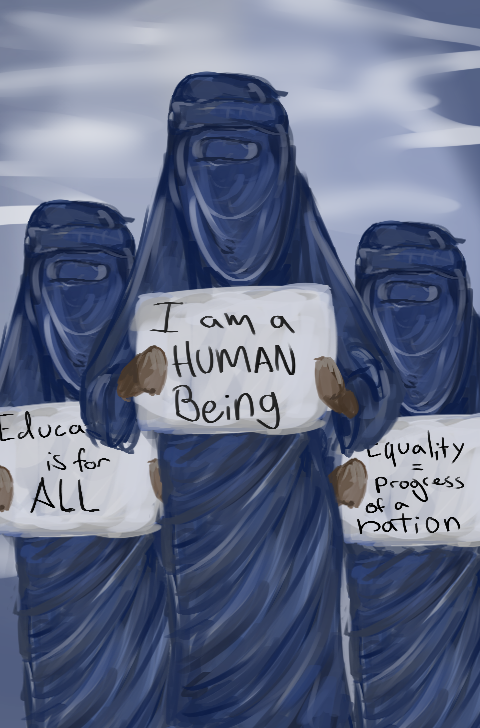By Clélie PARASIE (MAM-S5ENB)
Edited by Filipa SLYTA (LUX-S7SVA)

Since the Taliban’s return to power in August 2021, the rights and freedoms of women in Afghanistan have sharply declined. Although the group initially pledged to adopt a more moderate stance, they have since imposed severe restrictions on women’s participation in public life. Women have been banned from secondary and higher education, with schools for girls above primary closed in most provinces. Additionally, the Taliban has also enforced strict dress codes, requiring women to wear full-body coverings, such as the burqa, when going outside.
Employment opportunities for women have also been severely restricted, with many sectors, including education, health, and government services, effectively closed to them. Women who do manage to work must often adhere to strict gender segregation policies and are subject to heavy supervision. In some areas, the Taliban has allowed a few women to return to work in health care, particularly in female-only hospitals, but this is inconsistent and limited.
Furthermore, the Taliban has enforced strict curfews and travel bans for women, often requiring them to be accompanied by a male guardian (mahram) when leaving home. These policies have further isolated women from accessing essential services and have confined many to their homes.
Women’s rights activists and organisations face ongoing repression, with many activists arrested, forced into hiding, or silenced. International pressure has been ineffective in reversing the Taliban’s policies, though some countries and international organizations have tried to provide support for women through humanitarian aid and advocacy. However, such efforts face significant challenges as the Taliban continues to reject foreign influence on its domestic policies.
As of late 2024, the situation for women in Afghanistan remains dire, with little sign of a return to pre-Taliban-era freedoms. Despite this, women continue to fight for basic rights, including access to education, employment, and healthcare, even as they face an environment of severe repression and restriction.
